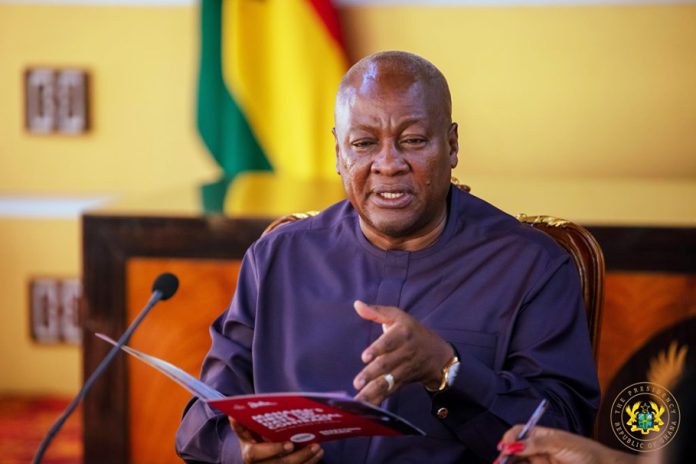The Ministry of Finance has issued a firm directive to all Ministries, Departments and Agencies (MDAs) to complete their migration onto the Ghana Electronic Procurement System (GHANEPS) by January 2026 marking a major milestone in government’s drive to automate and sanitise the country’s public procurement and payment systems.
Announcing the deadline at the 11th Public Procurement Forum in Accra, Deputy Minister for Finance, Thomas Nyarko Ampem, who represented the Minister for Finance, Dr. Cassiel Ato Forson, said beginning next year, the Comptroller and Accountant General’s Department (CAGD) will cease issuing manual cheques, as all transactions will be processed digitally through GHANEPS and the Ghana Integrated Financial Management Information System (GIFMIS).
“From January next year, the Controller will not issue manual cheques,” Mr. Ampem stressed, adding “If you do not operate within the digital system, you cannot spend. This is non-negotiable.”
He explained that the move forms part of comprehensive Public Financial Management (PFM) reforms aimed at promoting transparency, accountability, and fiscal discipline.
According to him, government had already completed the test integration of GHANEPS and GIFMIS and would fully operationalise the linkage within the Ministry of Finance before expanding nationwide in 2026.
“From now to the end of this year, all procurement processes and payments at the Ministry of Finance will use the integrated system.
“When we begin enforcing compliance across the MDAs next year, we will have the moral right to do so because we would have already walked the talk,” he said.
The Deputy Minister emphasised that effective procurement was not merely administrative, but central to fiscal prudence, given that a substantial proportion of Ghana’s budgeted expenditure passes through procurement.
“Almost 40 percent of our domestic revenue for 2025 estimated about GH87 billion would pass through the procurement system”, Mr Ampem said.
“If we are going to spend GH¢90 billion, we must do it well. That is why digitisation and accountability must define our approach going forward,” he added.
He described the ongoing procurement reforms as vital to ensuring public trust, improving value-for-money outcomes, and curbing fiscal leakages that have historically undermined the country’s economic stability.
GHANEPS as a Fiscal Game-Changer
Chief Executive Officer of the Public Procurement Authority (PPA), Mr. Frank Mante, in his remarks, underscored the transformative potential of GHANEPS as a tool for curbing corruption, reducing inefficiencies, and boosting competitiveness in public contracting.
He observed that e-procurement has become the global gold standard for ensuring transparent and efficient government spending, citing Indonesia and Somalia as countries that have achieved significant fiscal savings and accountability improvements through full-scale adoption of digital procurement systems.
“E-procurement eliminates human discretion, prevents alteration of documents after submission, and ensures every transaction is traceable. Between 50 and 70 percent of government budgets go into procurement, so automating the process is critical for fiscal control and development impact,” he said.
Mr. Mante disclosed that the PPA, in collaboration with the Controller and Accountant General’s Department, has completed pilot integrations of GHANEPS and GIFMIS and is training procurement officers nationwide to ensure a smooth transition ahead of the January 2026 enforcement date.
He also revealed that the Authority was working with the World Bank to implement a Methodology for Assessing Procurement Systems (MAPS) review to identify weaknesses in Ghana’s current framework and recommend reforms to further strengthen the Public Procurement Act, 2003 (Act 663) as amended.
“We have come far since GHANEPS was launched in 2019. The next stage is consolidation—making the system user-friendly, expanding access, and ensuring compliance,” Mr. Mante added.
World Bank Commits Continued Support
Representing the World Bank, Ms. Lina Tutunji, Senior Procurement Specialist at the Bank’s Ghana Office, reaffirmed the institution’s partnership with Ghana in building a transparent, efficient and professional public procurement system.
“Substantial public funds pass through procurement systems. A transparent, accountable, and digitised procurement process is essential for delivering quality services, achieving value for money, and encouraging fair competition,” she said.
She noted that the World Bank had supported Ghana’s procurement reforms since the inception of GHANEPS in 2019, including capacity building, technical support, and integration studies with GIFMIS.
Ms. Tutunji further indicated that the Bank would continue to assist the PPA and the Ministry of Finance in professionalising Ghana’s procurement workforce, which she described as “the human engine of reform.”
The 11th Public Procurement Forum, organised by the PPA, brought together key stakeholders from the public sector, civil society, industry, academia, and development partners to discuss Ghana’s procurement reform journey and strategies for full-scale digitalisation.









